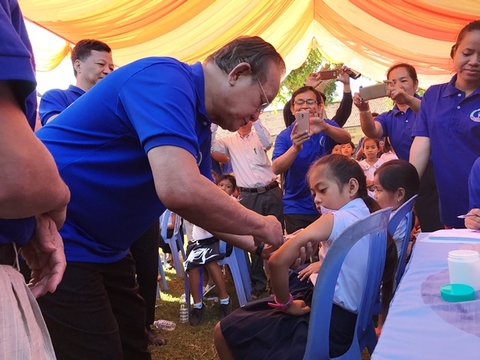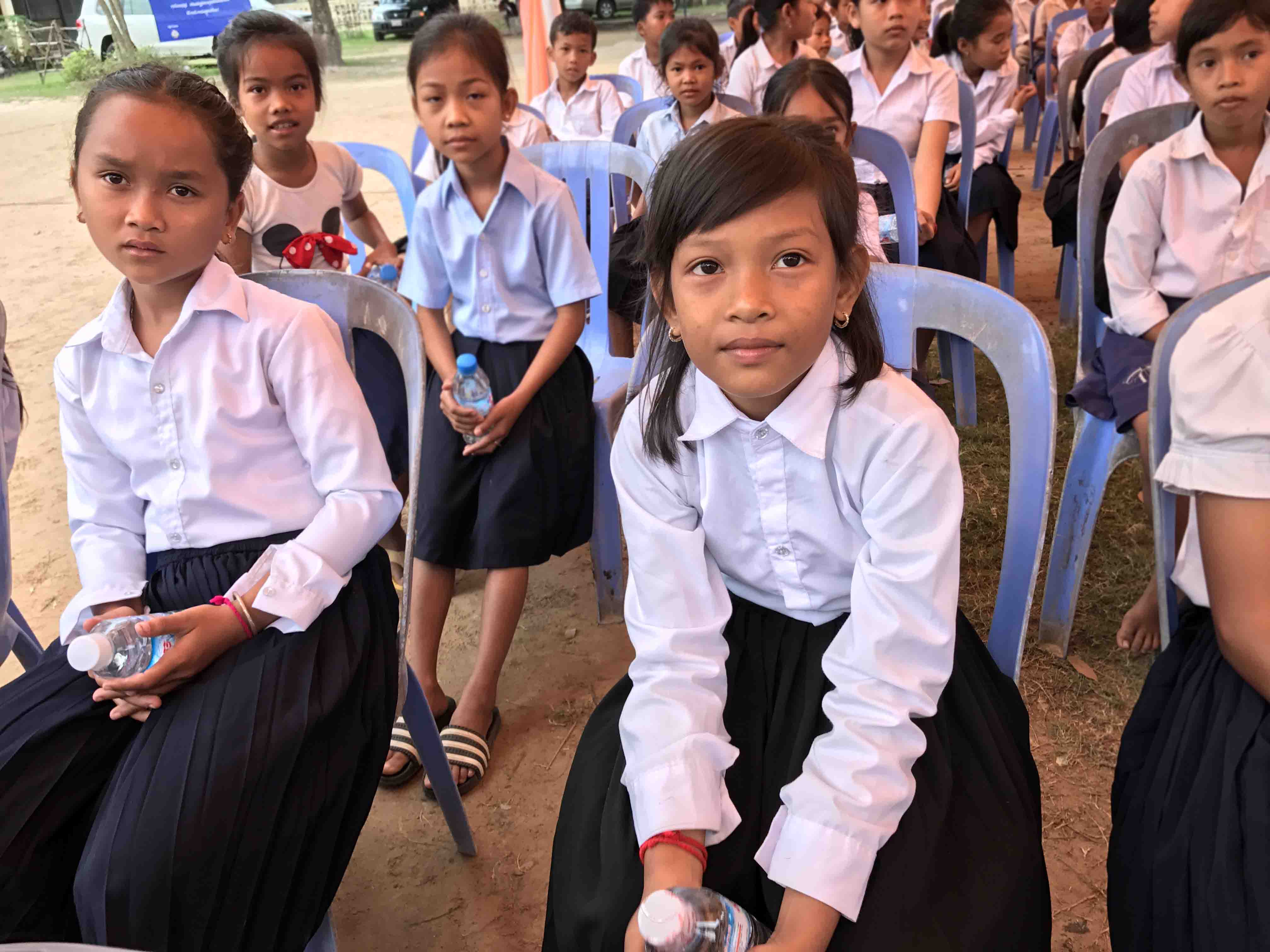Svay Rieng, 20 January 2017: Cervical cancer is the leading cause of cancer among Cambodian women aged 15 to 44 years old, claiming the lives of approximately 795 women and resulting in 1,512 new diagnoses each year. In almost all cases, cervical cancer is caused by the human papillomavirus (HPV), a common sexually-transmitted infection.

“Giving the Human Papillomavirus (HPV) vaccine to girls aged 9 to 13 years old is the most effective public health measure to prevent them from developing cervical cancer at a later age”, stressed Dr. Liu Yunguo, World Health Organisation (WHO) Representative during the demonstration programme launched in Svay Rieng province in January 2017.
Srey Nuch, was among one of 44 girls to receive the first dosage of the vaccination during the launching day at Pi Thnou primary school in Svay Rieng Town.
“It was just like a bite by the ant, and it made me so excited to get the vaccine. It protects me from getting cervical cancer when I am grown up, according to my teacher”, said 9-year old Srey Nuch shyly as she bounced happily next to her proud mother, who stood alongside her.
“Girls these days are so lucky! Women of my generation did not even know that there is a kind of vaccine to prevent cervical cancer”, said Ms. Ros Mearadey, 39 years old who has been in teaching for 20 years. “I have known a few neighbors had suffered from cervical cancer and one just passed away a few months ago”, she added.
4,850 girls aged 9-year old residing in Svay Rieng province will receive 2 doses of the vaccine free of charge from health centres and through outreach activities to schools and health centres. The first dose is being offered in January while the second dose will take place in July 2017.

A 2012 study by WHO revealed that cervical cancer was the fourth most common cancer among women worldwide, with an estimated 266,000 deaths and 528,000 new cases per year.
“When girls are well protected from their early age, they are safe from getting cervical cancer in adulthood,” emphasized HE Professor Eng Huot, Secretary of State of the Ministry of Health. “Teenage girls will enter their reproductive age soon and become at risk of acquiring many sexually transmitted infections. Giving them the HPV vaccine now can prevent them from getting cervical cancer in their lifetime”, added Excellency Eng Huot at the launch of the demonstration programme with around 200 participants, including primary school students, parents, teachers, government officials and development partner representatives.
UNFPA will take the lead in conducting an adolescent health assessment in March in order to understand possible interventions that promote adolescent girls’ health and could be paired with the vaccine rollout in the future.
The vaccine has been used in 67 countries already and is now being introduced into the routine immunization system in Cambodia, starting with the two provinces – Svay Rieng and Siem Reap as part of the demonstration project.

The vaccination programme aims to reach as many girls as possible and so the demonstration programme is being implemented in schools as 98% of girls aged 9 years old are in primary school.
GAVI, the Vaccine Alliance has provided financial support to purchase the HPV vaccine while WHO, UNICEF, UNFPA and other stakeholders have actively advocated for its inclusion into the national vaccination programme, in an effort to promote girls’ sexual and reproductive health and rights.
The vaccination programme aims to reach as many girls as possible and so the demonstration programme is being implemented in schools as 98% of girls aged 9 years old are in primary school.
GAVI, the Vaccine Alliance has provided financial support to purchase the HPV vaccine while WHO, UNICEF, UNFPA and other stakeholders have actively advocated for its inclusion into the national vaccination programme, in an effort to promote girls’ sexual and reproductive health and rights.


